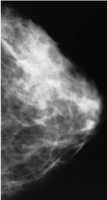Author Interviews, Cancer Research / 01.08.2024
Common Blood Tests May Help Doctors Detect Unknown Cancers in Patients with Vague Symptoms
MedicalResearch.com Interview with:
Dr Meena Rafiq | Academic GP & Clinical Research Fellow
FRACGP MRCGP MBBS BSc MSc
Epidemiology of Cancer and Healthcare Outcomes (ECHO) Group, UCL
Department of General Practice, The University of Melbourne
UCL Department of Behavioural Science and Health
MedicalResearch.com: What is the background for this study? What are the main findings?
Response: Almost all patients with cancer will first see their GP with symptoms and half of these patients will have vague, non-specific symptoms. As a GP I know it can be challenging to pick up patients with possible cancer in a 10 minute GP appointment, especially if they have vague non-specific symptoms. We know that many of these patients are already having blood tests done by their GP. So, we wanted to see if any of these blood tests could be used to help pick up with patients who see their GP with vague abdominal symptoms like abdominal pain and bloating are most likely to have cancer and need to be urgently referred.
(more…)











 Dr Sarah Myers PhD
Honorary Research Associate
UCL Department of Anthropology
MedicalResearch.com: What is the background for this study?
Response: Postnatal or postpartum depression is unfortunately common after giving birth; a figure often quoted is 15%, but some studies have found much higher numbers. Postnatal depression is associated with a range of poorer outcomes for mothers and their infants, and the financial costs of treating maternal mental ill health put health services under considerable strain. Studies have found that providing additional emotional support to at risk mothers, for instance via peer support programmes or regular phone calls with health visitors, can reduce the likelihood of them developing the condition. Therefore, it is really important that we understand the full range of risk factors that put women at greater risk of becoming depressed after giving birth.
There is increasing evidence for a link between inflammation and depression, with factors that trigger an inflammatory immune response also increasing the likelihood of depressive symptoms. The opens up the possibility of finding new risk factors for postnatal depression based on known associations with inflammation.
Dr Sarah Myers PhD
Honorary Research Associate
UCL Department of Anthropology
MedicalResearch.com: What is the background for this study?
Response: Postnatal or postpartum depression is unfortunately common after giving birth; a figure often quoted is 15%, but some studies have found much higher numbers. Postnatal depression is associated with a range of poorer outcomes for mothers and their infants, and the financial costs of treating maternal mental ill health put health services under considerable strain. Studies have found that providing additional emotional support to at risk mothers, for instance via peer support programmes or regular phone calls with health visitors, can reduce the likelihood of them developing the condition. Therefore, it is really important that we understand the full range of risk factors that put women at greater risk of becoming depressed after giving birth.
There is increasing evidence for a link between inflammation and depression, with factors that trigger an inflammatory immune response also increasing the likelihood of depressive symptoms. The opens up the possibility of finding new risk factors for postnatal depression based on known associations with inflammation.